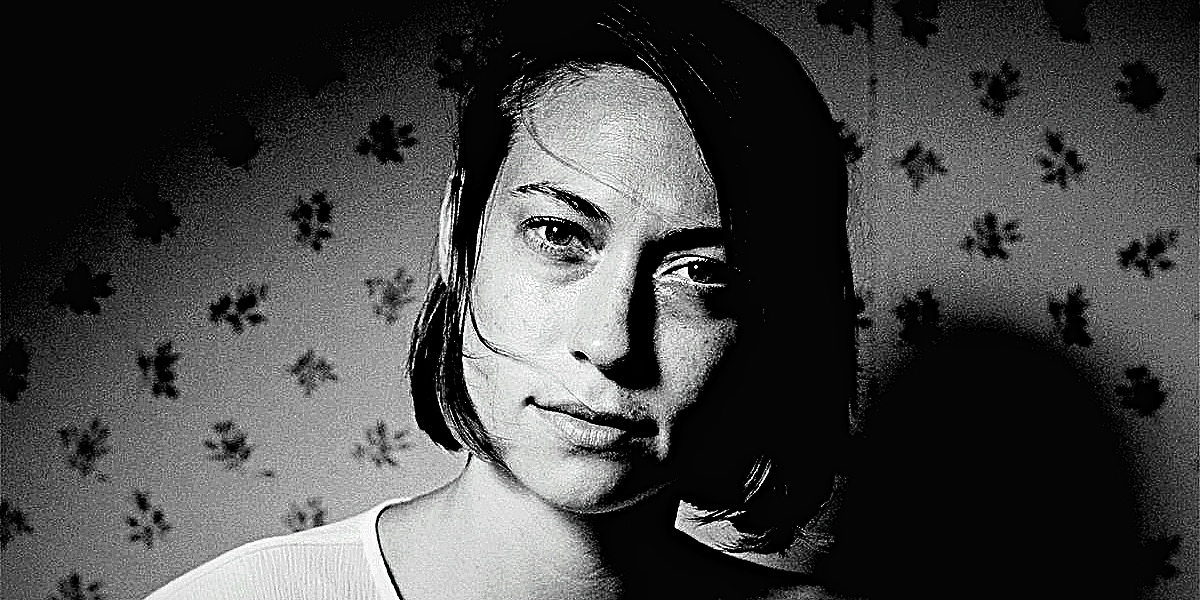I’ve been enamored with the new album, Quit the Curse, Anna Burch’s debut. What I can say right off the bat is: this album has a gorgeous sound and style. It’s laid-back, surfy, indie music, with beautiful vocals reminiscent of Kim Deal from the Pixies. Burch truly has created something beautiful here. It’s important for us, as Christians, to learn to appreciate beauty in and of itself.
God had blue pomegranates made for the tabernacle, for no discernible reason other than the fact that they were unique and beautiful. You don’t see blue pomegranates when you go out for a walk, and you don’t see them in piles at the grocery store. The same goes for Quit the Curse — you don’t hear this kind of music everywhere. You don’t hear people playing it in the park, you don’t hear it on the radio, and most of your friends and family probably don’t listen to it. It so amazed me, that at one point I was listening to this CD up to three times daily in the car.
Beyond the intrinsic beauty of the music, the thing which most captured my attention was her honesty. Her lyrics are unlike anything I’ve ever heard. They’re not break-through poetical masterpieces, but the things she says struck me in a way that most lyrics do not. She is incredibly self-aware. She’s aware of her faults and shortcomings, and knows what’s wrong with her, as well as what’s right with her.
Just to give a few examples, in the song Tea-Soaked Letter, she says:
Now all my cards are showing
That’s true for most of the album, and at the end of that same song:
So I made a scene
I can think of things more embarrassing
In Belle Isle:
I’ve done many foolish and hurtful things
Twisting myself up into the sheets with guilt
And I’ve let loads of men into my life
Who smothered me with jealousy and pride
She talks about her past with men, not in the crass way that’s become the norm for hideous pop-culture figures like Amy Schumer, but in a truthful and tasteful way, facing her struggles and regret head-on. She says later in the same song:
I’m so scared my past will run me down for good
Even the world regrets things and sees consequences where there supposedly should be none. We live in light of the free love generation who promised us unlimited love and sex with no attachments and no consequences, but it seems that Anna is coming to realize it isn’t true. Don’t believe Bernie Sanders when he tells you he’ll make something free. Nothing is free. Someone is always paying for something; even if you’re paying with guilt and tears.
Possibly the most self-aware lyric on the record comes from What I Want:
I won’t play the victim just because I can’t get what I want
It still surprises me, the amount of self-analyzation and reflection which must have gone into that statement. It seems that’s what she wants to do, but instead decides to take the higher road. How many of us would be that honest about our intentions? The petty games we play out of revenge or the things we do for attention typically come down to nothing except what she’s saying in this song: we’re not getting what we want.
She is clearly someone who has dealt with a lot of pain in her life, and while she explored that concept in the song Asking 4 a Friend, she stumbles upon an interesting truth:
If memory’s selective
And pain is all relative
It only sinks in when you’re above it, dear
I’m not positive her and I would come to the same conclusion regarding this, but she’s stumbling upon something interesting: How can we know pain if it’s all relative? We can only look back on our most painful moments and somehow set them aside from times that turned out not to be as bad. What good does that do for us in the moment? Nothing. The rest of the lyrics, pain-riddled as they are, testify to the falsity of pain being relative.
In the title song, Quit the Curse, she declares that she’s not cursed. She’s most likely not referring to the curse we know from Genesis 3, but it is intriguing that she would make such a claim in the midst of all this self-evaluation and genuineness. We all, under the covenant of works, are cursed unless we come to be under the covenant of grace.
For all the truth and beauty on this album, it falls short of ultimate truth and ultimate beauty. It is still limited by the nature of the artist.
I’m recommending Art & the Bible by Francis Schaeffer, and of course, Quit the Curse by Anna Burch.
